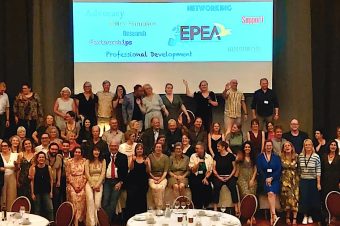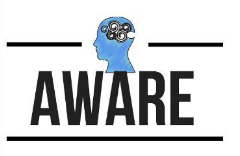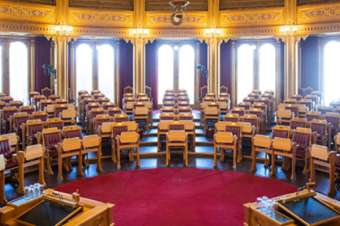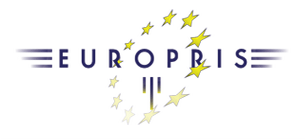Find all articles on the home page and in the printed version
CONTENTS
Foreword
Education in Prison – a unique universe
“Education opens up a world of knowledge and has the power to change lives,” said EPEA President Cormac Behan at the conference on education in prison held in Lausanne, Switzerland, at the end of November.
However, education is not only a world, it is a universe. Just the different approaches used to motivate inmates for education prove this. We would like to give you some examples of this in the actual newsletter.
Mary and her team make videos with prisoners about life in prison or about the longing of prisoners. You can see an example – Chance of Escape – in this newsletter here.
Or, at the conference mentioned above, a colleague from Germany presented her video project. In the context of this project, prisoners talk about their everyday life in prison in short films. The particular about it is that the films can be seen publicly on a website.
The classical arts also have their place in strengthening and expanding inmates’ personal and cognitive skills. Examples of this are the “Arts of Freedom” project, which is presented in this newsletter, or the prison theatre festival in Bucharest, which takes place every year in November and achieves impressive publicity.
Furthermore, there is the project “3D Jail – Printing the future”, in which the EPEA was involved. A training course was designed for prisoners to learn how to use 3D printers.
The teachers at El Acebuche prison in Almería, Spain, show that it can also be done in a very classical way. Together with the inmates, they regularly publish an internal magazine, “La Voz de la UTE”. It reports on life in prison. David, inmate and responsible for the prison library, reports here about his everyday life.
All these examples show that the teachers are very creative in fulfilling their task of supporting the individual and creating perspectives for everyone’s life.
However, the teachers also have to overcome a lot of resistance and defend themselves against prejudices in the process. “What did you do to get punitively transferred to education in prison? Nobody does that voluntarily,” a teacher in Switzerland was asked by an inmate. A few of the correctional staff also approach teachers with great scepticism. “Are you really convinced that your work makes a difference?” or “Do you teach more than just 1+1=2 here?” other teachers were asked.
However, the articles by Jim King and Ineke Kort show that education has not yet taken the place in the prison system that it should. The system is still primarily preoccupied with questions of security, so that the mission of reinsertion, in which education must play a decisive role, repeatedly takes a back seat.
But we as teachers in the penal system are able with our professionalism to open up new horizons for each student, to provide new fields of learning in order to strengthen everyone’s social competence and to expand their cognitive competences. In such a way that education can make a significant contribution to preventing recidivism.
To conclude with Cormac Behan: “Our task as teachers in prison is a noble one.”
Let’s go for it!
Thomas Wüthrich
Co-editor EPEA Newsletter
Vorwort
Bildung im Strafvollzug – ein einzigartiges Universum
«Bildung eröffnet eine Welt des Wissens und hat die Kraft, Leben zu verändern», sagte EPEA-Präsident Cormac Behan anlässlich der Konferenz zur Bildung im Strafvollzug, die Ende November in Lausanne in der Schweiz stattgefunden hat.
Bildung ist aber nicht nur eine Welt, sie ist ein Universum. Nur schon die verschiedenen Ansätze, mit denen die Insassen für Bildung motiviert werden, belegen dies. Einige Beispiele dazu wollen wir Euch im aktuellen Newsletter näher bringen.
Mary und ihr Team realisieren mit Gefangenen Videos zum Leben im Gefängnis oder über die Sehnsüchte der Gefangenen. Ein Beispiel – Chance of Escape – könnt ihr in diesem Newsletter hier sehen.
Oder, an der oben erwähnten Konferenz präsentierte eine Kollegin aus Deutschland ihr Videoprojekt. Im Rahmen dessen erzählen die Gefangenen in Kurzfilmen über ihren Alltag im Gefängnis. Das Besondere daran, die Filme sind öffentlich auf einer Website zu sehen.
Auch die klassischen Künste haben ihren Platz, um die persönlichen und kognitiven Kompetenzen von Insassen zu stärken und zu erweitern. Beispiele dazu sind das «Arts of Freedom»-Projekt, das in diesem Newsletter vorgestellt wird, oder das jedes Jahr im November stattfindende Gefängnis-Theater Festival in Bukarest, das eine beeindruckende Öffentlichkeit erzielt.
Des Weiteren ist da das Projekt «3D Jail – Printing the future», an dem die EPEA beteiligt war. Es wurde ein Lehrgang für Gefangene konzipiert, in dem sie den Umgang mit 3D-Druckern erlernen konnten.
Dass es auch ganz klassisch geht, zeigen die Lehrpersonen im Gefängnis El Acebuche in Almería, Spanien. Zusammen mit den Insassen veröffentlichen Sie regelmässig eine interne Zeitschrift, «La voz de la UTE». Darin wird über das Leben im Gefängnis berichtet. David, Insasse und verantwortlich für die Bibliothek im Gefängnis, berichtet hier über seinen Alltag.
Alle diese Beispiele zeigen, dass die Lehrpersonen sehr kreativ sind, um ihrer Aufgabe gerecht zu werden, den Einzelnen zu fördern und Perspektiven für das Leben eines jeden zu schaffen.
Die Lehrpersonen müssen dabei aber auch viele Widerstände überwinden und sich gegen Vorurteile wehren. «Was haben Sie getan, dass Sie in die Bildung im Strafvollzug strafversetzt wurden? Das macht doch niemand freiwillig», wurde eine Lehrperson in der Schweiz von einem Insassen gefragt. Einige Wenige des Vollzugspersonals begegnen der Bildung im Strafvollzug ebenfalls mit grosser Skepsis. «Bist Du wirklich davon überzeugt, dass Deine Arbeit etwas bewirkt?» oder «Lehrt Ihr hier mehr als nur 1+1=2?» wurden andere Lehrpersonen gefragt.
Dass Bildung aber ganz grundsätzlich noch nicht den Platz im System des Strafvollzugs eingenommen hat, den sie sollte, zeigt der Artikel von Jim King oder jener von Ineke de Kort. Noch ist das System in erster Linie mit Fragen der Sicherheit beschäftig, so dass der Auftrag zur Resozialisierung, in dem die Bildung eine entscheidende Rolle spielen muss, immer wieder etwas in den Hintergrund rückt.
Dabei sind wir als Lehrpersonen im Strafvollzug mit unserer Fachlichkeit in der Lage, jedem Bildungsteilnehmer neue Horizonte zu eröffnen, neue Lernfelder bereitzustellen, um die Sozialkompetenz eines jeden zu stärken und dessen fachliche Kompetenzen zu erweitern. Dergestalt, dass die Bildung einen wesentlichen Beitrag zur Verhinderung der Rückfälligkeit leisten kann.
Um mit Cormac Behan zu schliessen: «Unsere Aufgabe als Lehrer im Gefängnis ist eine noble Aufgabe.» Packen wir es an!
Thomas Wüthrich
Co-editor EPEA Newsletter
Editors
The editors Ana and Thomas invite you to read the articles of this newsletter.
Video in Spanish and Swiss German / English subtitles.
Foreword – The universe of Education
Original German text – English translation.
The Teacher’s Voice – the Newsletter Interview Video
Mary is an unique personality. Originally from Australia she became a very experienced teacher in prison and since 2016 she is the director of the Second Chance school at Diavata prison in Thessaloniki, Greece.
See video of the interview (18’) with her or read the essentials in English, also translated in German and Spanish.
Artistic and critical education can lead to transformational change
While prisoners thankfully no longer tarry ropes or break stones, the majority of the limited activity available in prisons lacks creativity or stimulation and is often confined to contractual specifications or outcomes. When we look at the perceived aims of imprisonment, punishment, deterrence, and public protection remain the principal and enduring aspects of political policy and ultimately court sanctions. Such aims often stand in stark opposition to the primacy of rehabilitation, which we cannot divorce from the political policies and populist discourses on crime and punishment. English text
The transformative power of arts in the prison system.
EPEA is an Associate Partner in the Erasmus+ funded project “Arts of Freedom” which started in September 2020. The project will provide two educational books, which will be intended for the education of artists and employees of the prison system and the general public. We are pleased to provide an update on this project, to which many of our members have already contributed. Learn more about the project implemented by the Croatian Association of Fine Artists in partnership with the EPEA and institutions from Norway, Poland, Hungary, the Netherlands, Spain and Croatia. English text.
Swimming against the tide.
I’m Ineke de Kort and in 2016 I started teaching in the Flemish prisons of Wortel and Merksplas for Ligo Kempen. I teach Dutch as a foreign language, and I do so with great pleasure. The context is not always easy, because a delicate balance must be struck between the departments of surveillance and education, and there are also some difficult corona measures. It often feels like swimming against the tide. But I try and persevere because it is so important to work on rehabilitation. How do we want a detainee to be released from prison? Completely frustrated, bored out of his mind and a danger to society? Or inspired and motivated to continue learning? The latter of course.
Text in English and Dutch.
La Voz de la UTE – the Voice of the therapeutic and educational unit in Almeria’s prison
As part of the educational programme within this special unit within Almeria’s prison El Acebuche the inmates edit several times a year their own magazine. Read the article of David, responsible for the library, about his daily routine in prison.
Original text in Spanish, translation in English.
The right to education of prisoners – results of an survey by Europris
At the request of the prison administration of a South Eastern European state, EUROPRIS recently carried out a non-representative survey among its members, nevertheless it is worth taking a look at the results of the survey. The tenor of the questions submitted is whether there are restrictions on the right to education of prisoners and, if so, what kind of restrictions these are. Original text in German, translation in English.
Snippets ( some with external links)
Short movie about the daily professional life of teachers in Education in Prison
At the Forum on Detention and Probation 2021 on November 24th/25th in Lausanne, Switzerland, a short movie about the professional life of Swiss teachers in education in prison had its world premiere. Starting from a biopic (German – English) about the teacher’s daily routine written by SC member Thomas Wüthrich the seven minutes long movie was realised by the Swiss Centre of Expertise in Prison and Probation within 4 months in three different prisons. At the moment the movie can be seen in French (here) and German (here) only.
Celebration of the International Day of Education in Prison IDEP in Brazil
In Brazil one of few celebrations regarding the IDEP took place on October 13th. A several hours long virtual meeting with speakers from different parts was held with the support of the UNESCO Chair for Reading PUC-Rio. The virtual seminar was hosted on youtube and can be seen here.
IDEP – Online Event around Digitalisation in Education in Prison NL/Belgium
On the 13th of October 2021, International Day of Education in Prison, the Dutch and Flemish branches of the EPEA, together with VOCVO and VUB Belgium, organised a webinar about digitalisation in prison in both countries. Society is busy adapting to the 4th industrial revolution: digitisation. Because of the corona pandemic, the world is moving towards a digital-first society where digitalisation plays a crucial role. Prisoners are twice as often not or lower educated than average. Low literacy is one of the symptoms. Unskilled labour is less and less available; even there, digital skills are still required. Digitisation is also playing an increasingly important role in education: in teaching materials, teaching methods and learning methods. This requires skills and digital literacy. We learned about how both countries are working on it through different presentations and projects.
News from KLASBAK – Flemish Branch of the EPEA
Since October 2021 Kiara Stevens, enthusiastic master student in Agogical Sciences at the VUB (Vrije Universiteit Brussels), is the person after our “Bakbericthen”, news from prisons in Flanders. She is replacing Bieke Deloof who left KLASBAK after her maternity leave. She has done a great job and we would like to thank her very much for her great commitment with education in prison. She will be missed but we wish her the best.
Furthermore, a new Facebook group for KLASBAK has been launched, where future “Bakberichten” will be shared. Don’t hold back and share articles, links, news items… Join us!
Statements on Education
This year’s conference of the Swiss Centre of Expertise in Prison and Probation SCEPP at the end of November in Lausanne focused on education in the penal system as well as the education and training of prison staff. See in this animation some statements on education in the prison in English, French and German. Source SCEPP (www.skjv.ch ).
Podcast on Education in Prison by Dr Anne Costelloe, Mountjoy Prison, Dublin, Ireland.
Interview with Dr Anne Costelloe, Head Teacher in Mountjoy Prison. On the Learning for All podcast she speaks about the importance of education and its transitional role within the prison education system and how Ireland provides ‘promising practice’ in this area. https://open.spotify.com/episode/7pIaD973kJYOR3zx1IdGvy?si=z_VujzaPQvKSdTY3SGv30Q
The next newsletter will be published in March 2022
The EPEA General Assembly,
normally held in the course of the EPEA Conference, could not be carried out this year due to the pandemic. The Steering Committee decided at its last meeting to hold a virtual General Assembly before the summer holidays in 2022. The Steering Committee kindly asks you to take note of this.
We wish a Merry Christmas and a Happy New Year!
Take care and stay safe!
Ana & Thomas
editors




![Basic education in prison BiSt – for the first time in a Swiss remand prison [EN/GE]](https://www.epea.org/wp-content/uploads/bist2-340x226.jpg)
